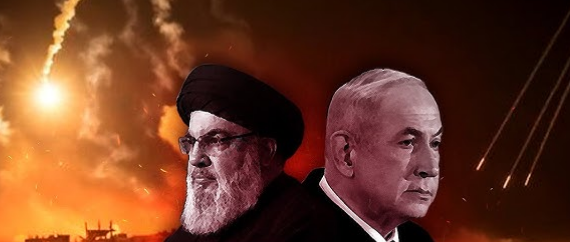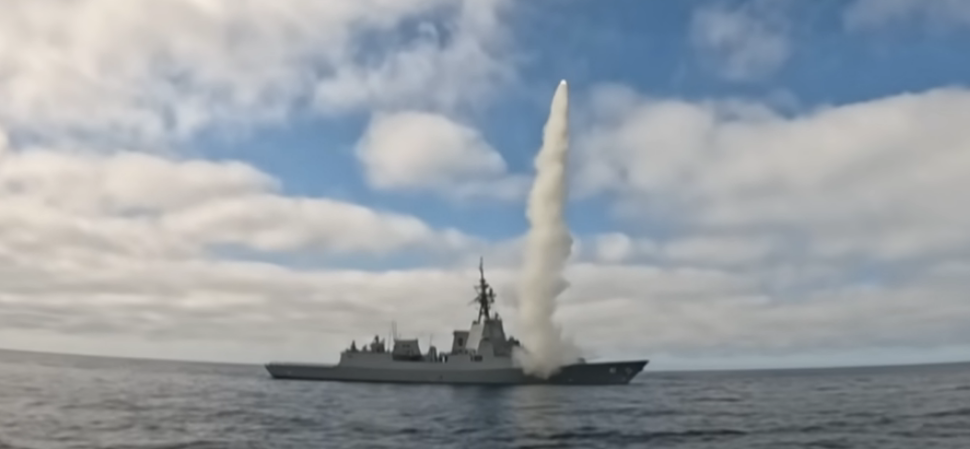By Mel Gurtov\PeaceVoice
Photos: YouTube Screenshots
Just a few weeks ago, the media were reporting that Israel and Hezbollah were edging closer to an agreement that would bring their deadly exchanges along the border with Lebanon to a halt. At the same time, however, the rising number of firefights and casualties, and the mutual buildup of forces, threatened to do the opposite: create a major war which, as in 2002, caused huge losses for all sides.
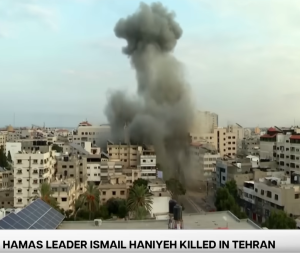
Fateful Choices
Now, two weeks later, the stakes for all sides are much higher. A Hezbollah rocket attack killed 12 children in a village in the Golan Heights, and Israel’s response—an air assault on Beirut that killed Fuad Shukr, a senior Hezbollah commander—raised the stakes. At virtually the same time, Israel also carried out the assassination in Tehran of Ismail Haniyeh, a key figure in the Hamas leadership.
Once again, the threat of a wider war looms, and the leaders in Israel, Hamas, Hezbollah, and Iran must reconsider whether these escalations should continue. In short, for each of them the strategic question is: Should we continue with tit-for-tat actions, accept our losses and continue negotiating a cease-fire, or escalate to repay blood debts?
Embedded in these choices are certain military and political realities, described in detail by Dexter Filkins in the July 29 issue of The New Yorker. If Israel attacks Hezbollah’s huge missile and rocket force, estimated at around 150,000, it would probably not be able to destroy it completely.
That would probably require Israel to follow up with a ground invasion. Hezbollah, meantime, could fire thousands of missiles a day into Israel, causing huge losses of life and property. But Israeli strikes would also cause enormous losses for Hezbollah, and an invasion might well destroy much of Lebanon itself. Iran would have to weigh how to support Hezbollah, at the great risk of a showdown with the US, which just now is bolstering its Middle East air and naval presence just to head off that possibility.
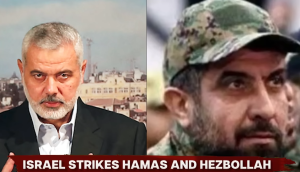
Vengeance: A Common Motive
All the parties thus have reason to fear a wider war, and have said as much. Yet the desire for vengeance runs deep. Israel’s government conveyed a wish to avoid a larger war, but also said the assassinations were necessary to repay for the killing of children.
Hezbollah and Iran also lean toward retribution. Hassan Nasrallah, Hezbollah’s leader, declared at the funeral of Fuad Shukr: “The enemy, and those who are behind the enemy, must await our inevitable response … You do not know what red lines you crossed.”
Iran’s supreme leader, Ali Khameini, is said to have ordered an attack on Israel, which most likely would come from Hezbollah but could be directly from Tehran. Observers recall that the last time Iran responded to an Israeli attack, in April, which killed several senior Revolutionary Guards at the Iranian consulate in Damascus, Syria, Iran made its first-ever direct attack on Israel.
The trouble with all these options for using greater force is that, when you step back and analyze them, their necessity and motives are questionable. Did Israel carry out the assassinations at that particular moment in order to squelch progress in the cease-fire talks and sustain the far right’s social and political agenda?
Steven Erlanger raised that issue in the New York Times of August 2. So did an Israeli writer for Ha’aretz, who wondered if Netanyahu was “deliberately provoking escalation in the hope that a conflagration with Iran will drag the United States into the conflict, further distancing [him] from the debacle of October 7 . . .”
The same question can also be asked of Hezbollah and Iran: Is a major retaliation against Israel necessary at this time, with the high risk of sparking a war that might bring in the US? Is the Hezbollah strategy, dictated by Iran and supported by Hamas, to keep the pot boiling in order to provoke further US and international distancing from Israel?

Escalation and Miscalculation
What kind of retaliation any of these parties will make against Israel, and how Israel might respond, may not be known for a while. But one thing all the parties should consider but may ignore: They cannot fully control an escalation.
It’s a phenomenon familiar to students of war: actions taken defensively by one side, with the aim of deterring the other side from further attacks, are interpreted by the other side to be more threatening, leading to further escalation in response. A former US ambassador to Israel, Thomas R. Nides, put it well:
“Neither side really wants a bigger war because they understand the huge damage that it would cause their countries. The problem is that wars are caused by miscalculations. And by trying to deter each other from escalating, they risk making a miscalculation that does the opposite of what they intended.”
At bottom, none of the contending parties seems to want either war or peace. Retribution seems to fit with each of their strategies. That is the latest Middle East tragedy, portending no imminent release of hostages or prisoners, no letup in the humanitarian disaster in Gaza, and no movement toward a permanent cease-fire and Palestinian statehood.
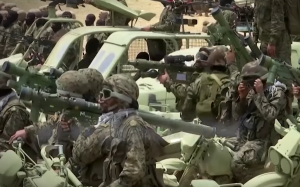
Mel Gurtov, syndicated by PeaceVoice, is Professor Emeritus of Political Science at Portland State University and blogs at In the Human Interest.
